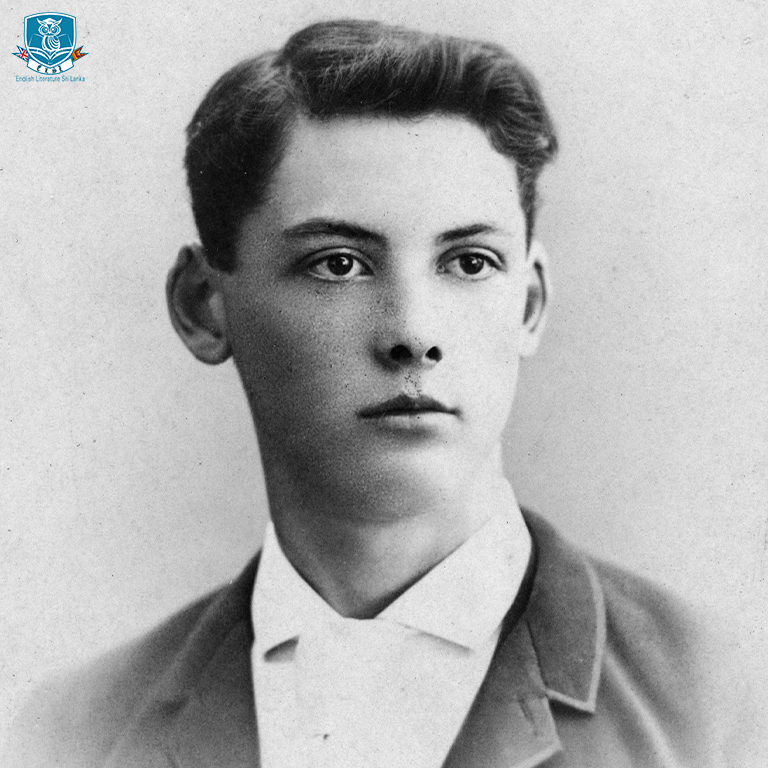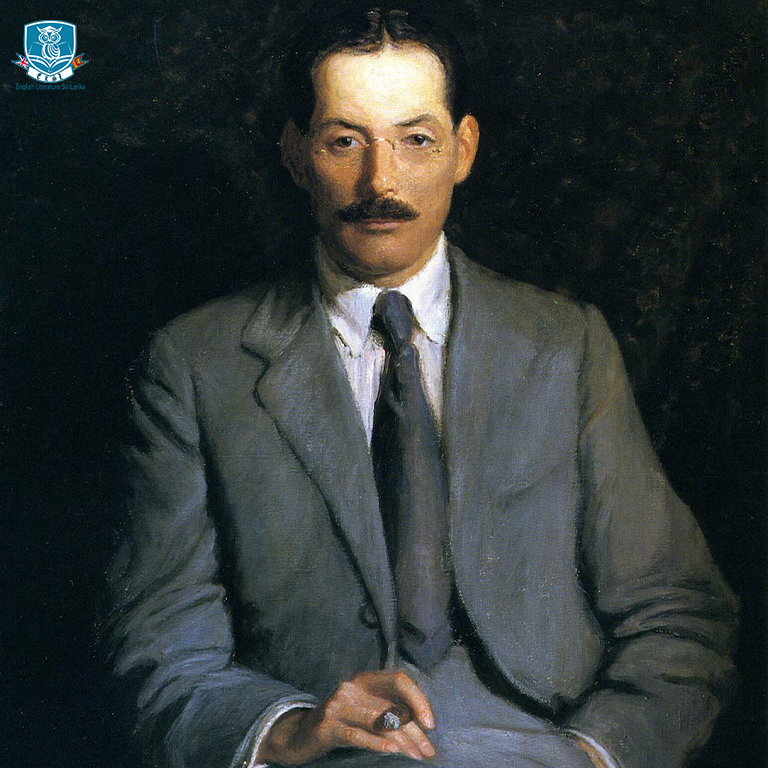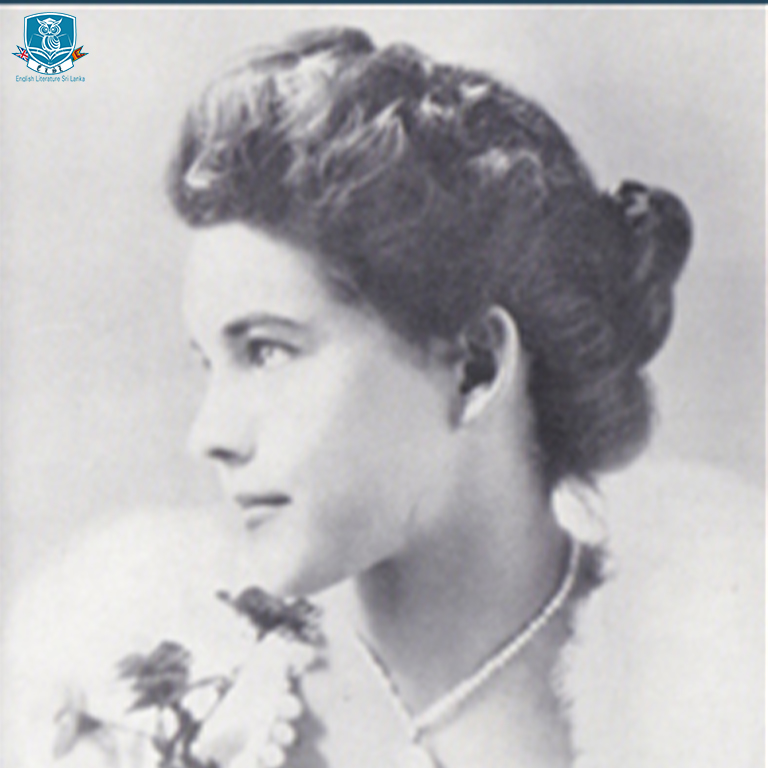Analysis of the poem "Richard Cory" by Edwin Arlington Robinson
Stanza 02
Richard Cory - Edwin Arlington Robinson
Whenever Richard Cory went down town,
We people on the pavement looked at him:
He was a gentleman from sole to crown,
Clean favored, and imperially slim.
And he was always quietly arrayed,
And he was always human when he talked;
But still he fluttered pulses when he said,
“Good-morning,” and he glittered when he walked.
And he was rich—yes, richer than a king—
And admirably schooled in every grace:
In fine, we thought that he was everything
To make us wish that we were in his place.
So on we worked, and waited for the light,
And went without the meat, and cursed the bread;
And Richard Cory, one calm summer night,
Went home and put a bullet through his head.
Edwin Arlington Robinson
Edwin Arlington Robinson is an American Modernist poet who contributed to world Literature between the late 19th and early 20th centuries. Once analyzed, his story of life concludes to be dreary and unhappy. Since his parents expected a female child, they were not so happy to accept him to the family, and even rejected to name him. He hated his name Edwin as it was given by a random stranger and Arlington, as it is the name of a city. The pessimistic view he had during the early years of his life makes most of his literary works to be downbeat and dark.
His Eldest brother Dean Robinson becomes a laudanum addict, the love of his life, Emma Löehen is married by his middle brother, Herman Robinson who ultimately ends up as a failure in his business; an alcoholic who is indifferent to his wife and children who dies penniless of tuberculosis.

"Richard Cory"
The poem Richard Cory is based on the thoughts of Herman Robinson’s wife, Emma on her husband. It is composed during the panic of 1893 when the United States was suffering a severe economic depression, which is the very reason behind the tragic end of E.A Robinson’s lover’s husband. The “bread” functions as an allusion to the economic depression during which many survived by eating old bread.
‘Richard Cory’ is a based on the style of prose fiction as the content is fictitious and is revealed using vernacular language. At the same time, it functions as a lyric poetry as it is a formal poem in the first person narration which expresses ones tempestuous emotions.
The poem revolves around the one and only significant, masculine character called Richard Cory. The narrative voice casually exaggerates his judgement based on the appearance which ultimately concludes be a mere prejudice.
Richard Cory’ is a structured poem of four quartans. It is dominated by end-stops which is common in death/suicide poems. The narrator is a singular character who dwells on the pavement of ‘downtown’, yet projects a collective voice and opinion of the general working poor.



Richard Cory - Analysis
Stanza two
Line one
And he was always quietly arrayed,[a]
- The second stanza opens with the coordinating conjunction ‘and’ suggesting the reader that the elaboration of Richard Cory’s character continues.
- ‘quietly arrayed’ suggests that Richard Cory is not an extravagant character.
- There are two different reasons for Cory to be ‘quietly arrayed’. On the one hand, he is genuinely a modest character who does not want to show off his riches. Yet in a different perspective, it is possible to argue that he does not have any riches to showoff as his apparent modesty – is a metaphorical indication of his economical instability. Thus it indicates the contradiction between the prejudice of the people and the reality of Richard Cory.
Line two
And he was always human when he talked;[b]
- The anaphora of “and” suggests the excitement of the narrator to list out the exaggerative characteristic of the recipient.
- “and he was always” is a repetition which suggests the apparent consistency of the characteristics of Richard Cory.
- “Human” is a metaphor which refers to the down to earth character of Cory.
Line three
But still he fluttered pulses when he said,[a]
- “But still” suggests a contradictory idea to ‘he was always human when he talked’. ‘he was always human when he talked’ is a positive revelation on Cory’s character, thus ‘he fluttered pulses when he said’ is a negative connotation.
- However, there are two options for the ‘fluttered pulses’. It refers to the irregular heartbeats. Either of Richard Cory or of the people who talk to him.
- If Cory flutters pulses, it reveals his nervousness as he is not socially confident. In a different perspective, If he flutters pulses in the hearts of the people to whom he greets, it is simply because they are astonished by his glamour.
Line Four
“Good-morning,” and he glittered when he walked.[b]
- The only phrase Cory utters to the people is ‘Good-morning’. The lack of words said is a contradictory feature to Richard Cory’s down to earth character.
- ‘Good – morning” is a direct speech statement uttered by the recipient.
- ‘glittered when he walked’ is another addition to the elevated judgement of the people on Richard Cory.
General outlook of stanza two
- Perfective aspect and the past tense still dominates the overall stanza suggesting that the judgements on Richard Cory are no longer valid in the present.
- There is no change in the rhyming scheme as it suggests the monotony of the atmosphere and the characters of the poem.
- The overall stanza contains a significant number of coordinating conjunctions which suggest the excitement of the people to see and to interact with Richard Cory.
- Every line contains an end-stop which supports to indicate the idea of transience while maintaining the tension and unpredictability of the poem.
Subscribe to our YouTube Channel to gain access to all the new video lessons.




